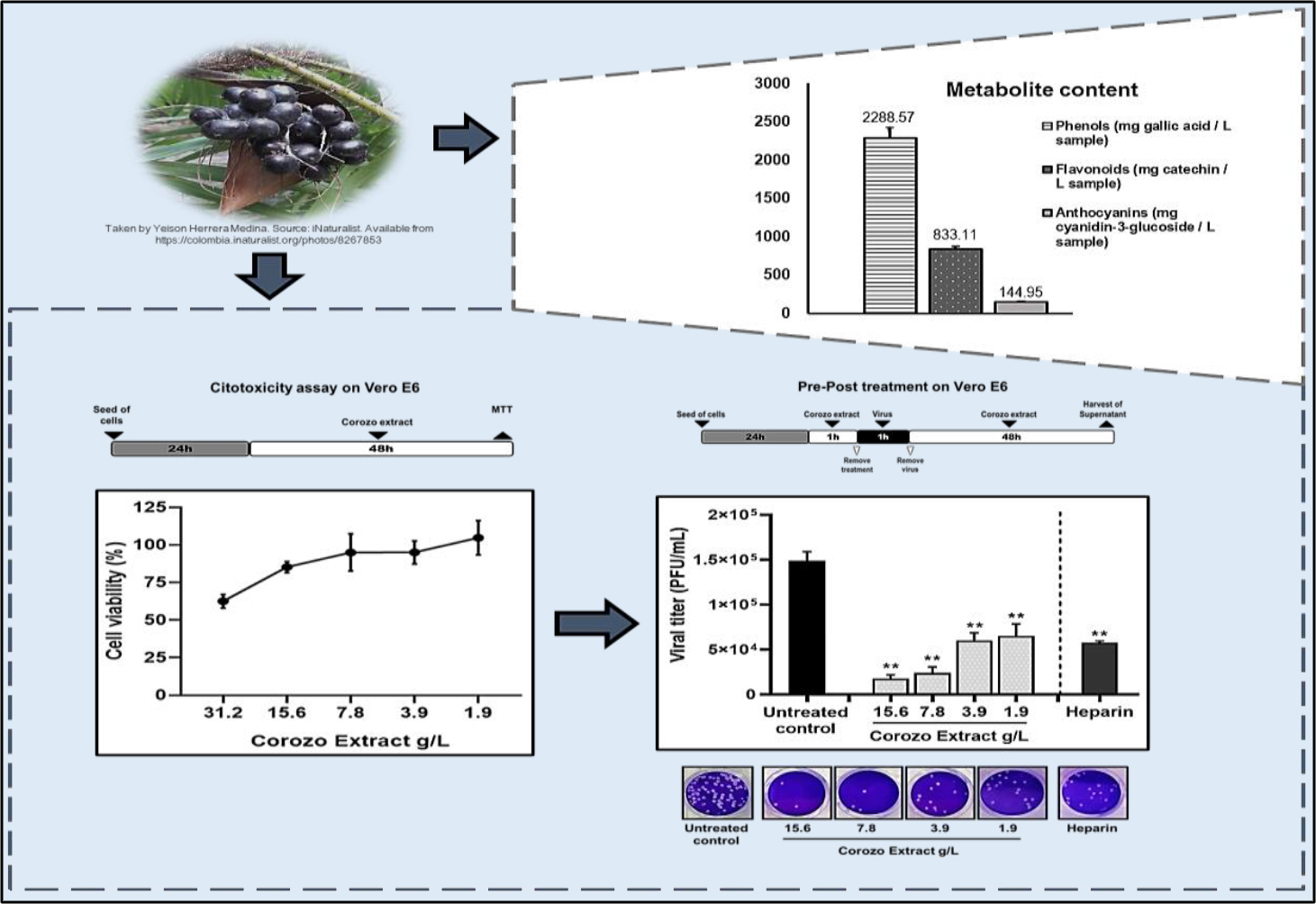Corozo (Bactris guineensis) fruit extract has antiviral activity in vitro against SARS-CoV-2
DOI:
https://doi.org/10.31989/ffhd.v12i9.918Abstract
Background: Given the current COVID-19 pandemic, numerous drug development studies are being carried out for the treatment and control of this disease. This study aimed to evaluate the in vitro antiviral potential of Corozo fruit extract (Bactris guineensis) against SARS-CoV-2.
Methods: Corozo extract (CE) was prepared from the pulp of mature Corozo fruits. The total content of phenols, flavonoids, and anthocyanins in the extracts was determined using the Folin-Ciocalteu, aluminum chloride, and pH differential methods, respectively. The cytotoxicity on Vero E6 cells was evaluated by MTT assay. Antiviral activity was evaluated by pre-post-treatment using a Colombian isolate of SARS-CoV-2. Viral titer was quantified by plaque assay.
Results: Anthocyanin concentration of CE was 144.95 ± 10.3 mg cyanidin-3-glucoside/L. The cytotoxicity of CE on Vero E6 was lower to 20 % at 15.6 g/L. Corozo extract inhibited SARS-CoV-2 at 15.6, 7.8, 3.9 and 1.9 g/L with inhibition percentages of 88.2%, 84%, 59.6% and 56.3%, respectively.
Conclusion: This is the first report on the in vitro antiviral effect of Corozo fruit extract against SARS-CoV-2. Since this is a natural product, proven safe for consumption, in the future and with further studies, it could be considered an important functional food that can be useful in preventing strategies to fight against COVID-19.

Keywords: Bactris guineensis, Corozo fruit, antiviral activity, SARS-CoV-2, COVID-19.
Downloads
Published
Issue
Section
License
Any manuscripts or substantial parts of it, submitted to the journal must not be under consideration by or previously published in any other journal or citable form. Authors are required to ensure that no material submitted as part of a manuscript infringes existing copyrights or the rights of a third party. In submitting one's article in any form, the author has assigned the FFC publishing rights and has agreed to an automatic transfer of the copyright to the publisher. This is so that the FFC may create print option journals, for example, at the FFC’s discretion. If the author wishes to distribute their works by means outside of the FFC, for example within their community, they will have to place a request.
Correspondence concerning articles published in Functional Foods in Health and Disease is encouraged. While derivative works (adaptations, extensions on the current work, etc.) are allowed, distribution of the modified material is not allowed without permission from the FFC.